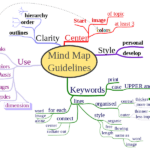25 Surprising Ways to Find a Job
The drive to find a job is as old as civilization itself. But we’re currently advancing at rates far beyond anything we’ve seen in the past thanks to the acceleration of technology and how it affects the world of work.
Now more than ever, candidates need to be thinking outside the box when it comes to landing a position of gainful employment. In the following article, we’re going to share 25 surprising ways that you can succeed in your search. Let’s begin!
1. Take a Vacation
Vacations are great for clearing the mind. That’s why virtually every company everywhere gives their employees at least one week per year where they can, with pay, leave town and hit the reset button.
People with jobs and earned vacation can pull this off pretty easy and reap the benefits. It’s a good idea to go somewhere that will allow you to not think of or be reminded of work. Somewhere that’s creatively energizing. Doing so will allow you to see the other available possibilities, and it may even touch your entrepreneurial spirit if you see a business your city of residence doesn’t currently have.
People who don’t have jobs or vacation time will have to travel on more of a budget. But the same holds true, so it can be worthwhile altering your scenery for a week or a few days.
2. Define Your Dream Job
Workers having a tough time with their current job or job seekers who aren’t enthusiastic about what they see on the job sites should try this exercise. Sit down and imagine what your ideal job would look like.
Careful, though. You want to be somewhat realistic. Don’t say something like, “A job that pays me a million bucks a year to do nothing.” That’s fantasy. You want to describe a job that’s within reach. Focus on the following:
- A realistic salary given your skill set
- Benefits (i.e., insurances, time off, etc.)
- Typical work schedule (four 10-hour days, five 8-hour days, 24 hours on and 48 off)
- Room for advancement and incentives available
If you take the time to describe your dream job, you’ll have a better chance of seeking it out and being there at the right time whenever it becomes available.
3. Interview an Influencer
We do not mean someone nationally or internationally well-known. It’s great if you can find someone like that willing to talk to you. But influencers are everywhere. And they don’t necessarily need to have written books.
Just look for men and women in your community who have leadership roles. Find someone who is close to your area of interest, or simply pick someone because of their accessibility. Showing enough interest in what they do will put you on their radar. And these types of people can either become your next employer or lead you to your next employer.
Make the most of it by putting your best foot forward in the interview itself. Ask insightful questions. If any interesting follow-ups come to you during the interview session, feel free to break from your script and ask those. The more natural you can make the session, the better.
4. Write a Short Story
Writing fiction may not seem like a good job-hunting strategy. But if you do it the right way, it can lead to enormous strides forward in your self-understanding and what you visualize as the perfect career path.
If you have trouble getting started, make it about yourself. Start where you are and tell a story about you finding your next job or overcoming a great challenge. It’s all about visualization. The more you can “see,” the better chance you have to shape the future.
5. Visualize the Opposite of You
Do a real self-assessment of who you are. What are your hopes and dreams? If you have any trouble getting started, just search for character worksheets online. It will lead you to a number of different character development questions that you can apply to yourself.
Once you’ve answered those questions and taken a hard look at who you are, you can start reverse-engineering the person you are to create a different persona. In this different persona, pay particularly close attention to the work aspects. What is this Opposite You doing that you aren’t?
You don’t have to follow each of his or her “leads.” But having an understanding of Opposite You will move you closer towards the person you’d like to be.
6. Learn How to Unwind
The job search can be overwhelming. This is especially true when you’re not getting anywhere with it. So it can seem a little crazy to take a day or two off from the search. But doing so gives you the opportunity to let go of the stress and can make you more effective when you go back to it.
Still, it’s about more than taking a day or two off. You’ve got to know how to take time off. Include plenty of rest and relaxation, whatever that looks like to you. By freeing your mind from the obligation, you allow your creative side to think of new and more effective approaches.
7. Clean House, or Office Space
The act of cleaning house or, more specifically, your office environment creates a more positive flow of energy throughout the space where you’re the most productive. A productive mind leads to you being more productive. And what’s more productive than finding gainful employment?
8. Schedule Quiet Time
Schedule about 45 minutes alone in a room with no sounds, no music, no television, and no talking. Close your eyes and allow it to paint a picture of the life you’d like to have from the three P’s perspective: personal, private, and professional.
By personal, we mean your interactions and relationships with others. By private, we mean behind-closed-doors, hobbies, etc. And by professional, we mean your work life. What does it look like? What freedoms does it afford you, both on and off the job? Try this at least once per week and note your progress.
9. Reexamine Your Routines
We all have routines. Typically, they are helpful to productivity. But it’s also possible to get stuck in them. In fact, they may be keeping you from improving and expanding your horizons.
As you dig into the way you’re spending your days and weeks, list your current priorities. How could you tweak those commitments or change them altogether? Don’t change them for the sake of change, though. Think instead of how you can improve upon them.
10. Do a Skills Inventory
Many times we take what we’re good at for granted. It can even be easy to overlook key strengths when you’re doing a resume.
Don’t sell yourself short. Schedule some more quiet time when you can sit down and list out each and everything you are either competent or very good at doing. This gives you a solid foundation on which to build your education and workforce training.
11. Then Do a Learning Wish List
Once you know what your strengths are, it’s time to explore what they could be. Think of things you’re interested in that you’re already proficient at as well as those skills you’ve always wanted to know but haven’t been able to find the time for.
This session should result in a wish list for continuing education. From there, make sure you start working every single day on the skills until they can realistically be added to your resume. Along the way, you may want to work for free in those areas. It’s a great way to get on-the-job training and valuable connections that will lead to gainful employment down the road.
12. Schedule a Field Trip
A field trip is much different from a vacation. With the vacation, we advised you to take some down time for yourself and to let your unconscious mind do any of the work that needs doing.
Field trips are purposeful getaways. They consist of you visiting someplace specific to the knowledge you’re seeking with the express purpose of advancing your understanding in that area. A field trip is a learning mission that helps with knowledge, networking, and possibilities.
13. Describe Your Own Company
Maybe the company you want to work for hasn’t been invented yet. Don’t let its absence stop you!
Sit down with pen-and-paper and brainstorm a list of qualities visible in the perfect company. As these ideas add up, begin organizing them in a way that makes sense to you.
Get them fully categorized. Then, write out a narrative that clearly defines what this company does and why they’re a great place to work. You may never start your own company, but the exercise of doing so will give you a clearer picture of what to expect and demand from an employer, as well as the road map for becoming worthy of such a company.
14. Be Open to Learning Outside of ‘Business Hours’
Sometimes we compartmentalize our learning to school or work. When we’re away from it, we make the conscious decision of turning off our brains and allowing Netflix to take the place of creative thinking. Big mistake.
To really get ahead and life — and to find the type of job that’s fulfilling — you need to be engaged enough to learn more outside of these “business hours.” Turn your free time into learning time. The only way to do this effectively is to pursue a career field that legitimately interests you.
15. Make Connections Anywhere and Everywhere
One of the most effective things you can do to become a strong reader is to make connections anywhere and everywhere you can find them. That is, connect the reading material to something in your personal life or another item you’ve read or to something happening in the world.
These connections turn you into a strong reader, and they also turn you into a strong job-hunter (not to mention entrepreneur). They enable you to find solutions in unlikely places. And when you get to that point, you’ll be the type of worker that stands out from the competition.
16. Drill Deep Into a Chosen Topic
This topic could either be one you already have some familiarity with or one that you’ve always wanted to learn. It doesn’t matter. Just make sure that you ask more-than-surface-level questions. How do you do that? There are many ways.
You could go visit Amazon and browse through books on the topic. Click the “Look Inside” feature and navigate to the Table of Contents. This feature often gives away many of the key points the book will be covering. You also could head over to Google and ask one simple question on the topic. That will connect you to other related questions that people are asking.
Keep following those related topics until you’re so far deep you start to understand the more complex lingo. From there, do new searches on some of the jargon and keywords you encounter. Keep going, and you’ll soon be the expert! Or you’ll at least be able to talk like one, which can go a long way if you find yourself with a job interview in the future.
17. Pick Your Most Admired People
We all have someone we admire, whether living or dead, famous or obscure. If these people are in your circle of residency, thank your lucky stars. That means they’re accessible!
When you’re choosing these individuals, define why you admire them. What is it they do, either in their personal or professional life, that makes you have that level of respect? How does your admiration for them intersect with your strengths and skill-sets?
Being able to define these qualities will guide you toward the industries and businesses that you want to work for. And that desire will eventually pay off!
18. Be a Servant of People
Try doing something for someone else, no strings attached. If you’re adding value to them or their organization before they’ve paid you a dime, then you’re going to earn a lot of goodwill that has a way of getting remembered once you let everyone know you’re on the market.
19. Create a Mind Map
Sometimes we fail to score the good jobs because we fail to see the way ideas, people, and positions are connected to one another. To remedy this, we recommend you get comfortable with the process of mind-mapping.
There are software programs that can accomplish this in a cool, intuitive way. But we like good old-fashioned pen and paper, though that can get a little unwieldy the more connections you’re able to draw between people, places, companies, job titles, and ideas.
A well-thought-out mind-map will go a long way in helping you see the big picture. And the future belongs to big-picture thinkers.
20. Build a Course
It may seem a bit counter-intuitive, but the best way to learn something is to teach it. How does that work, you ask?
Start with your understanding. Then, think about the audience. Obviously, they would need to know less than your base knowledge for you to be able to teach them effectively.
But here’s the thing. When you think like a teacher, you evaluate, create, and reshape material in a way that deepens your own understanding. You do this because you know you’ll need a clear understanding to make it make sense to others.
This comes in handy for job-hunting because it enables you to learn more about the company, the people interviewing you, the functions of each role and how they work together to find cohesion. The more you’re able to do this, the more you’ll attract the attention of recruiters and hiring managers. And with that attention, you’ll rise to the top of their final picks.
21. Reach Out to Someone You Do Not Know
This is a trick that enables you to get comfortable with networking. Networking is important for job-hunting. It leads to better-paying jobs that emphasize quality-of-life. But how do you go about reaching out to this person?
Start with research. Look into their company and their role within it. Keep digging until you have questions that come to you naturally. From those questions, choose one to write up in an email to the individual. If you have trouble finding email addresses, do a little digging on the company website until you find a unique domain.
If there’s an email address that states “[email protected],” then you know the “abccompany.com” part of it. From there, you might experiment with a number of prefixes:
- [first name].[last name]@abccompany.com (also might consider replacing the dot with an underscore, or _)
- [first letter of first name][last name]@abccompany.com
- [two- or three-letter initials of the individual]@abccompany.com
You can usually find a good email address with a little experimentation. Or, you can try a place like Rocket Reach.
22. Get Involved with Events
Choose a workable number of networking or job fair events you can go to in the next 30 days. One every 10 days is not unreasonable. Need to travel to fill out your number? Do it. Totally worthwhile and could lead to your next big contact or even a position.
23. Choose Your Next Boss
You may not end up working with him or her at their current company. But the relationship could end up yielding fruit two or three jobs down the road.
Just decide which qualities are the most important to you in your work. Look for people who exhibit those qualities (even if you have to look across the country to find them). Then, start following them as well as the people who follow them.
We tend to travel with like minds. So even if you don’t end up getting to work for them ever, you might make a connection with a mutual contact who points you toward your next big opportunity.
24. Tap Your Friends
As the song says, we get by with some help from our friends. And if you send a heartfelt, sincere message to five of your closest friends letting them know you’re looking for a job and welcome all the advice or information they can give you, they will usually oblige.
Having five people looking for a position is far better than having just yourself. And when you enlist the aid of your friends, that’s exactly what tends to happen.
25. Create a Spreadsheet to Track Your Job Search Progress
In marketing, it’s said that it takes five to 20 “impressions” or “touches” before you get a prospect to buy from you. Well, you’re selling yourself as a great employee, so why shouldn’t that be as true in the job market as it is in marketing?
What will help you accomplish success in this law-of-numbers game is knowing whom you’re contacting as well as how frequently. For that reason, launch a spreadsheet and commit to updating it every week (at the least) and every day (at the most).
Make note of the people you’ve contacted and the details of the messaging. Once you do this, you can hone in on your hot prospects, stay with the lukewarm ones, and know who to archive as inactive.
Creativity Is the Ticket to Find a Job You Enjoy
As you can see, the drive to find a job is about more than simply filling out applications and doing whatever the hiring department tells you to do. While we’ve covered a lot of ground here, our list is hardly exhaustive.
So, we’d like to hear from you. What are some not-so-ordinary methods you’ve used for landing work? Share your experiences in the comments section below.
[Featured Image by Inc Magazine]








